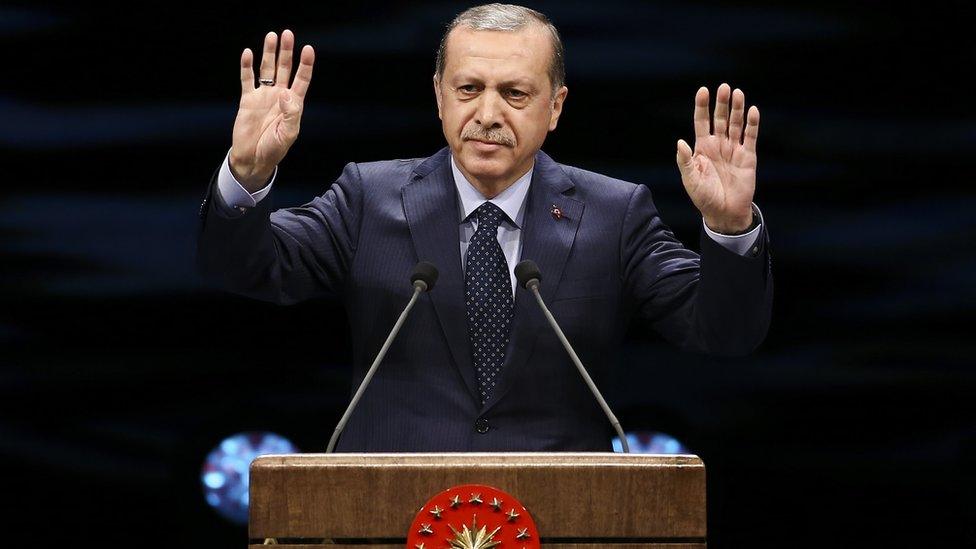Turkey says 'No' to saying 'No', ahead of its referendum
- Published
With a referendum looming, 'No' seems to be becoming a difficult word to say in Turkey.
The cartoon shows a bewildered man in a voting booth, eyes bulging as he examines a ballot paper. The choices: "evet" (Yes) or "terorist" (you get the point).
It was fertile ground for Turkey's most famous satirical magazine, Penguen: the raging debate over whether to accept or reject a constitutional change that would radically enhance President Erdogan's powers.
Why is Turkey holding a referendum?
'Open, police!' The day a Turkish writer's life changed
Profile: Recep Tayyip Erdogan - Turkey's dominant president
It will be put to a referendum on 16 April. Mr Erdogan and the government support a yes vote - "evet" - as reflected in the posters now springing up across Istanbul. And it is becoming increasingly difficult to say "hayir" - "no".
In a speech this month, Mr Erdogan said those voting "no" would be "siding with the coup-plotters", a reference to the attempted military overthrow last July.
'Kafkaesque disappearance'
Alluding to the Kurdish militant group the PKK, he added: "The separatist terrorist organisation says 'no'. Those siding with them say 'no'."
Other government officials, like the notoriously brash mayor of Ankara, tweeted that "all of the traitors say 'no'", adding a picture of opposition leaders and the exiled cleric the government blames for orchestrating the failed coup.
Penguen seized on the rhetoric. The message from the government is clear: you're either with us or with the terrorists.
The demonisation of the word "no" is reaching new, seemingly absurd levels.

Anti-smoking leaflets prepared by the Ministry of Health were suddenly withdrawn because they contained the word "hayir" - "no" - in red capital letters. A government MP said "they could be misunderstood".
The Oscar-nominated Chilean film called "No" - which tells of the defeat of the Pinochet regime in a referendum - was taken off air by Digiturk, a cable TV provider.
Digiturk was recently bought by a company from Erdogan-friendly Qatar. It did not respond to the BBC's request for comment.
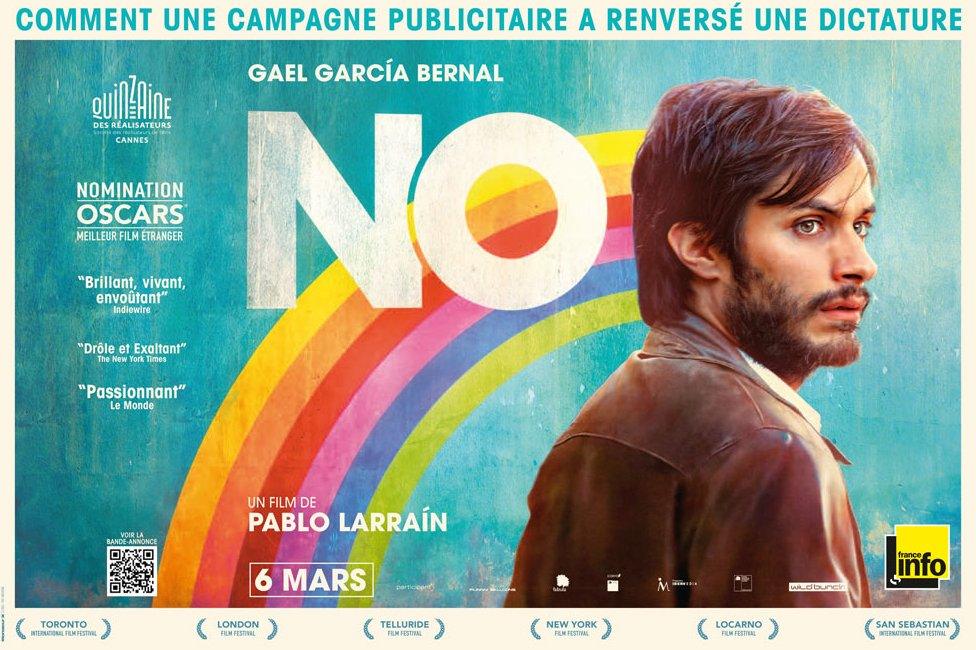
The word is even being studiously avoided in everyday speech.
A common expression typically used by conservatives is "hayirli cuma", wishing a blessed Friday. But as "hayir" also means no, some are now preferring "cuma mubarek", an alternative blessing (with the same meaning).
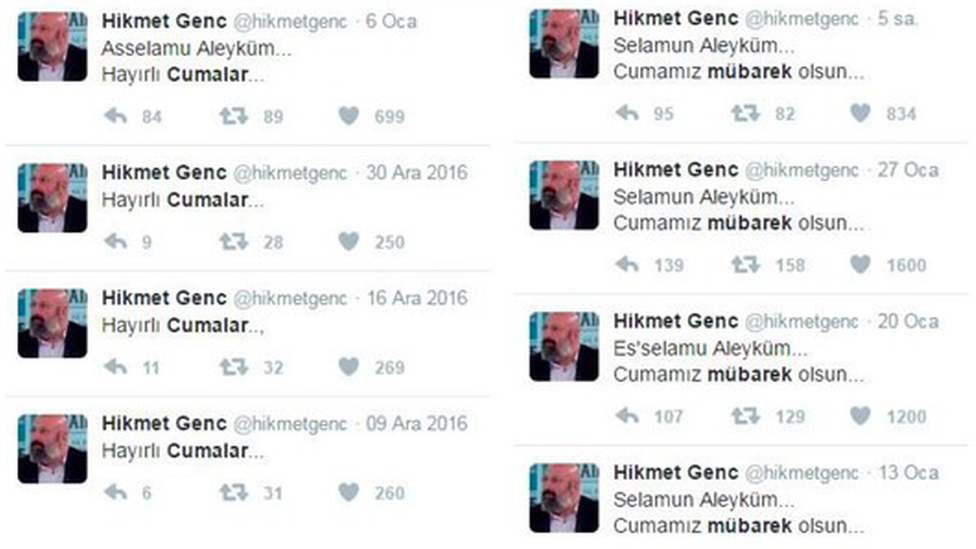
Beyond the almost Kafkaesque disappearance of the word "no", some are feeling the impact of trying to say it.
'One-man rule'
A group campaigning for a "no" vote in the Istanbul district of Kadikoy was attacked by police. An online video shows policemen pulling a gun and using pepper spray on protesters.
Turkey's leading newspaper, Hurriyet - which has become increasingly pro-government - cancelled an interview with the Nobel Prize-winning author Orhan Pamuk after he said he would vote "no" in the referendum.
And TV presenter Irfan Degirmenci was fired from presenting his breakfast show after tweets supporting a "no" vote. The programme is shown on Kanal D, which has the same owner as Hurriyet newspaper.
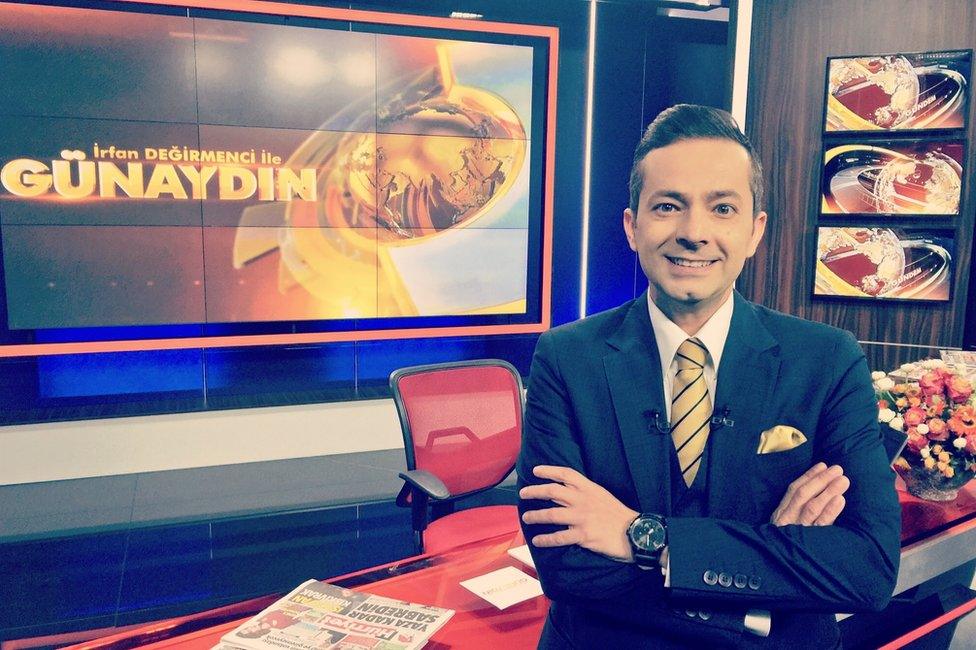
TV presenter Irfan Degirmenci says he would have been free to express support for a "yes" vote
"For the past seven years, I have tweeted my opinion on issues like human rights or the Gezi Park anti-government protests in 2013," Mr Degirmenci told me.
"But this time, the boss called me and said 'We don't want to work with you any more'. They didn't give me any compensation, simply saying 'Go to court if you like'."
I put it to him that news presenters across the world would face the same treatment if they aired their personal political opinion on social media.
"You're talking about real democracies," he answers. "TV presenters in Turkey often state their own opinions. Those from pro-government channels are free to say "yes" - and if I had tweeted that, I would be offered new positions with better money.
"But when I say that the constitutional change would create a one-man rule in Turkey, I'm fired."
Divisive
In recent days, the government has changed tack - perhaps seeing that the characterisation of "no" voters as "terrorists" hasn't persuaded them to switch sides.
This week, President Erdogan appealed to opposition voters to vote "yes", calling them "my brothers". The prime minister sounded a conciliatory note too, saying: "Whether the result is yes or no, Turkey will continue on its path."
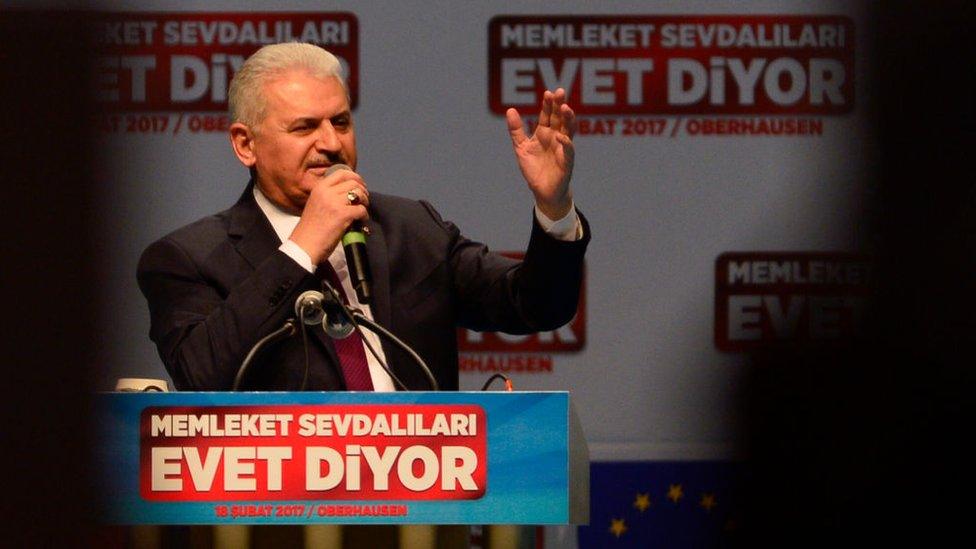
Turkish Prime Minister Binali Yildirim hopes to persuade undecided voters
The opinion polls point to a very tight race in April and the government is trying every tactic to sway the large numbers of undecided voters.
This would be arguably Turkey's biggest political change since the foundation of the Republic in 1923: abolishing the post of prime minister, turning the country from a parliamentary to a presidential republic.
The president would be given new powers, including to appoint ministers or enact certain laws by decree, which the government says would streamline decision-making.
Opinions on both sides - for and against - are strong. But for many, it has come down, in effect, to a referendum on Mr Erdogan himself - perhaps modern Turkey's most successful, but also most divisive leader.
Opposition figures are pushing for the change to be rejected and Mr Erdogan's ambitions to be halted. But on the streets of this polarised country, some are finding that "no" has become a dirty word.
- Published13 February 2017
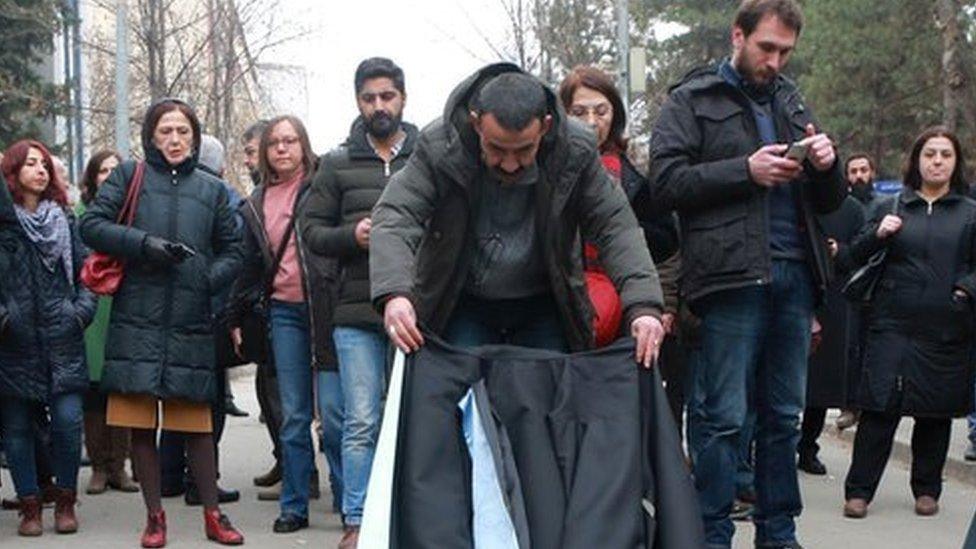
- Published16 April 2017
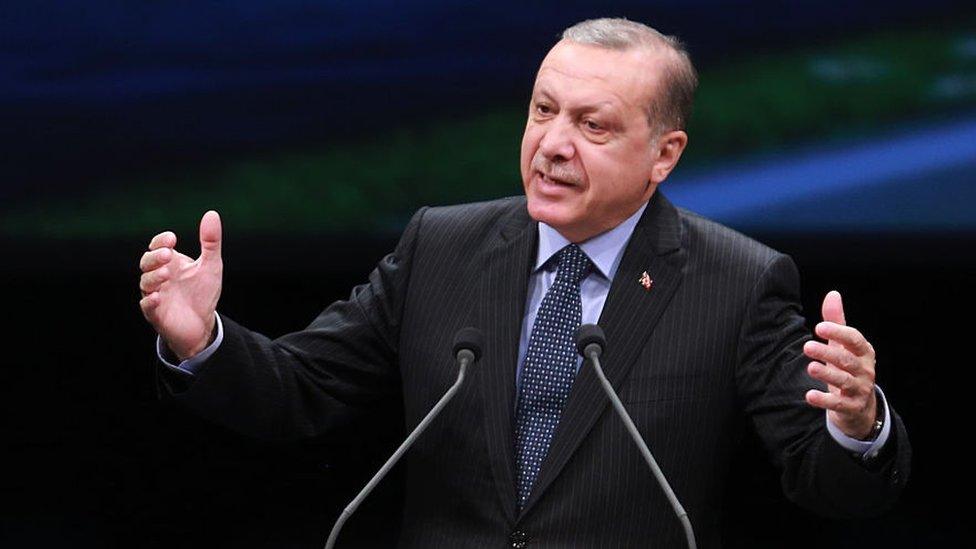
- Published27 December 2016
